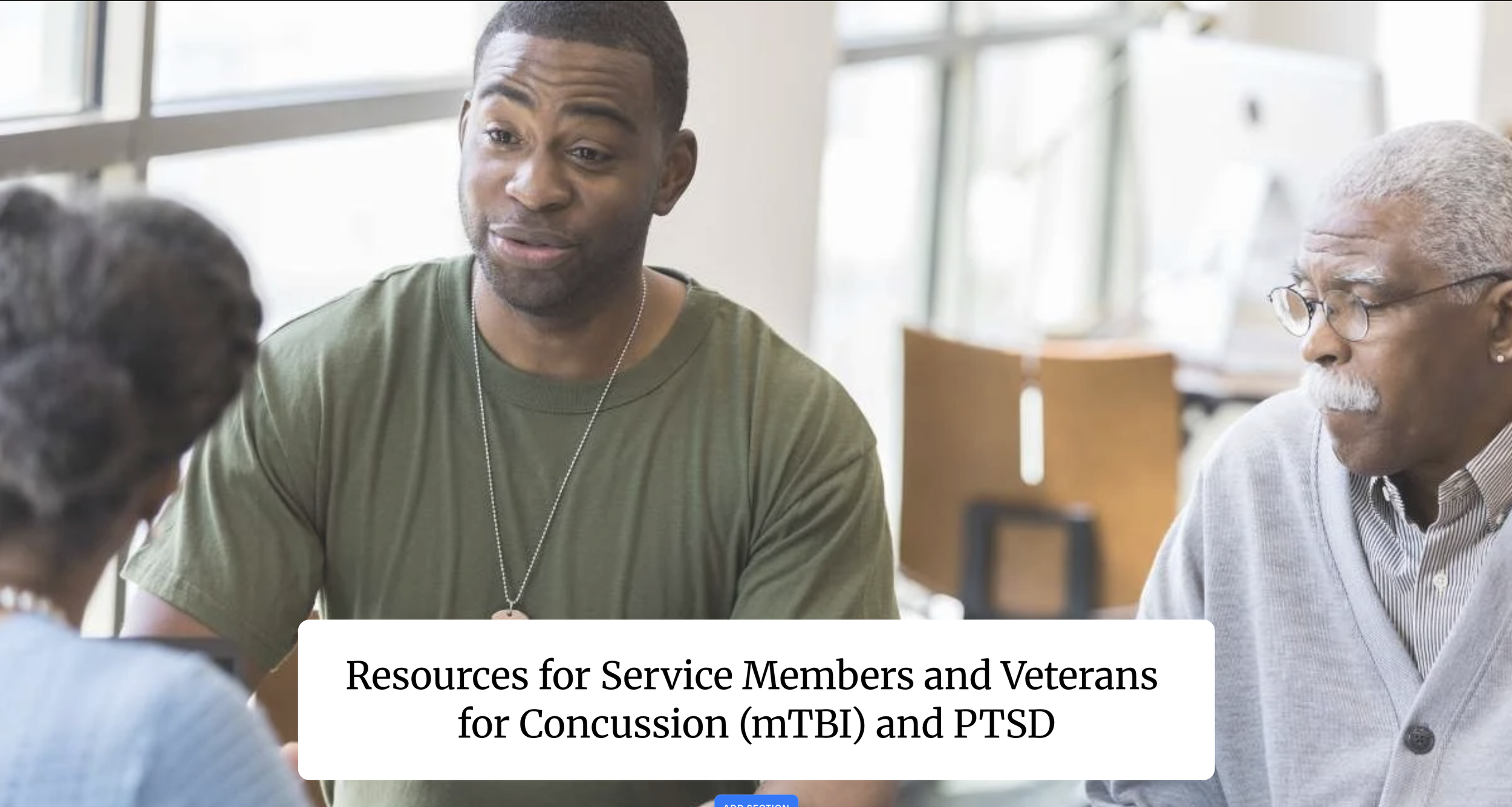Concussion Update Newsletter
See below for previous editions.
Our biweekly Concussion Update newsletter provides thoughtful synopses of new research, news related to concussions, listings of free webinars, and calls for study participants for research.
Near-infrared light therapy improves cognition (12/11/25 Newsletter)
Upcoming webinar; new clinical practice guidelines for TBI care; neuron inflammation and loss correlates with years of repetitive head impacts, increasing susceptibility to CTE in former contact sports athletes.
Novel virtual reality balance training program improves persisting symptoms after concussion (11/20/25 Newsletter)
Concussion Alliance internship alum publishes research. Early treatment for new daily persistent headache is associated with improved outcomes in youth. Spotlighting the incidence of concussion in Cirque du Soleil artists.
Veterans Day Special Edition
Concussion Alliance resources for veterans, a research study on heart rate variability biofeedback therapy, TRICARE offers Talkspace online mental healthcare, and a provider education webinar recording.
XT Guardian Caps do not reduce the risk of sport-related concussions in high school football players (11/6/25 Newsletter)
Upcoming Concussion Advocate Training Workshop. Concussion Alliance Co-Founder and COO published by Women in Global Health. Standard assessment tools often miss long-term burden of concussion on older adults. Gender differences found in concussion assessment; push for a more gender-specific approach.
Hyperbaric oxygen therapy (HBOT) alleviates chronic neurocognitive symptoms (10/23/25 Newsletter)
Upcoming Concussion Advocate Training Workshop. Concussion Alliance brings on new employee. Concussion patients ages 5-24 experience increased (but still low) suicide risk. Juvenile concussions in mice linked to progressive changes in the brain later in life.
Psilocybin may support recovery after traumatic brain injury (10/9/25 Newsletter)
White matter structural changes in adult amateur soccer players, females have higher risks of persisting symptoms after a car accident
Acupuncture after concussion reduces symptoms & improves white matter integrity (9/25/25 Newsletter)
persisting cerebral blood flow changes reveal seconday injury processes months after full return to play, practicing self-compassion can help with psychological struggles after TBI
A drug that could help heal the brain after TBI (9/11/25 Newsletter)
Lunch & Learn Q&A next week; alterable lifestyle choices may play a larger role in post-concussion depression than concussion itself; brain injuries are common but under-recognized in older adults
Concussion symptoms mistaken for alcoholism: United pilot files lawsuit after being wrongly terminated (8/14/25 Newsletter)
Racial bias may affect concussion care and risk for Black athletes. Intimate partner violence leads to a higher risk of traumatic brain injury and adverse mental health impacts later in life
Dietary interventions can reduce persistent headache frequency and severity after brain injury, including concussion (7/31/25 Newsletter)
Heading a soccer ball can affect white matter conductivity, acute concentration issues predictive of persisting symptoms at six months
Certain social dynamics can negatively impact concussion recovery (7/24/25 Newsletter)
Certain social dynamics can negatively impact concussion recovery, new Australian community soccer guidelines, two studies investigate indicators of neurodegeneration in mid-life retired rugby players
Common pain relievers show promise in speeding concussion recovery (7/17/25 Newsletter)
Concussion Alliance Lunch & Learn Co-Founder Q&A, inhibiting enzyme protects cognition & brain integrity in mice, concussion associated with lower odds of college & grad school in Finland, reader feedback from about dual-task and neuromuscular training.
Dual task training may reduce risk of musculoskeletal injury caused by sensory & neuromuscular impairments after concussion (7/10/25 Newsletter)
Concussion Alliance Lunch & Learn Co-Founder Q&A, combining narrative with science improves concussion education, clinical guide for recognizing child maltreatment, education for kids at summer camp
Brain imaging and biomarkers can predict sleep disorders in concussion patients (7/3/25 Newsletter)
Welcome Concussion Alliance Interns, people can’t recognize TBI, need for comprehensive evaluation & rehab for women
CDC national surveys find that the prevalence of concussions is dramatically higher than previously estimated (6/19/25 Newsletter)
Concussion Alliance annual report, device measures glymphatic waste clearance during sleep, updates on objective vision assessment tool
RUNIT collision sport: collisions cause injury in competitive events, death in social media challenge parroting the sport (5/29/25 Newsletter)
New acute TBI diagnostic framework, youth with ADHD take longer to recover, try cognitive shuffling for insomnia
Special Advocacy Newsletter: Save the CDC’s concussion program (5/20/25 Newsletter)
Concussion Alliance Public Forum Talk, advocacy action item for CDC concussion team
Concussion In Sport Group Education Symposium highlight: A Neurodiversity Toolkit for concussion patients (5/15/25 Newsletter)
Concussion Alliance Public Forum Talk, update on CDC TBI team elimination, aerobic exercise improves executive function, chronic headaches and suicide risk
Special Edition: CDC’s Entire Traumatic Brain Injury Team Eliminated (5/1/25 Newsletter)
On April 1, the entire 5-person traumatic brain injury (TBI) team at the Centers for Disease Control and Prevention (CDC), the team responsible for the Heads Up concussion resources, online courses, and the National Concussion Surveillance System, got an email: their jobs had been furloughed due to the President's order, and they were to vacate the office that day.




















